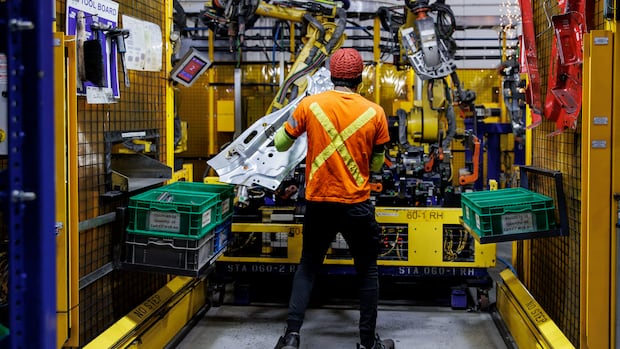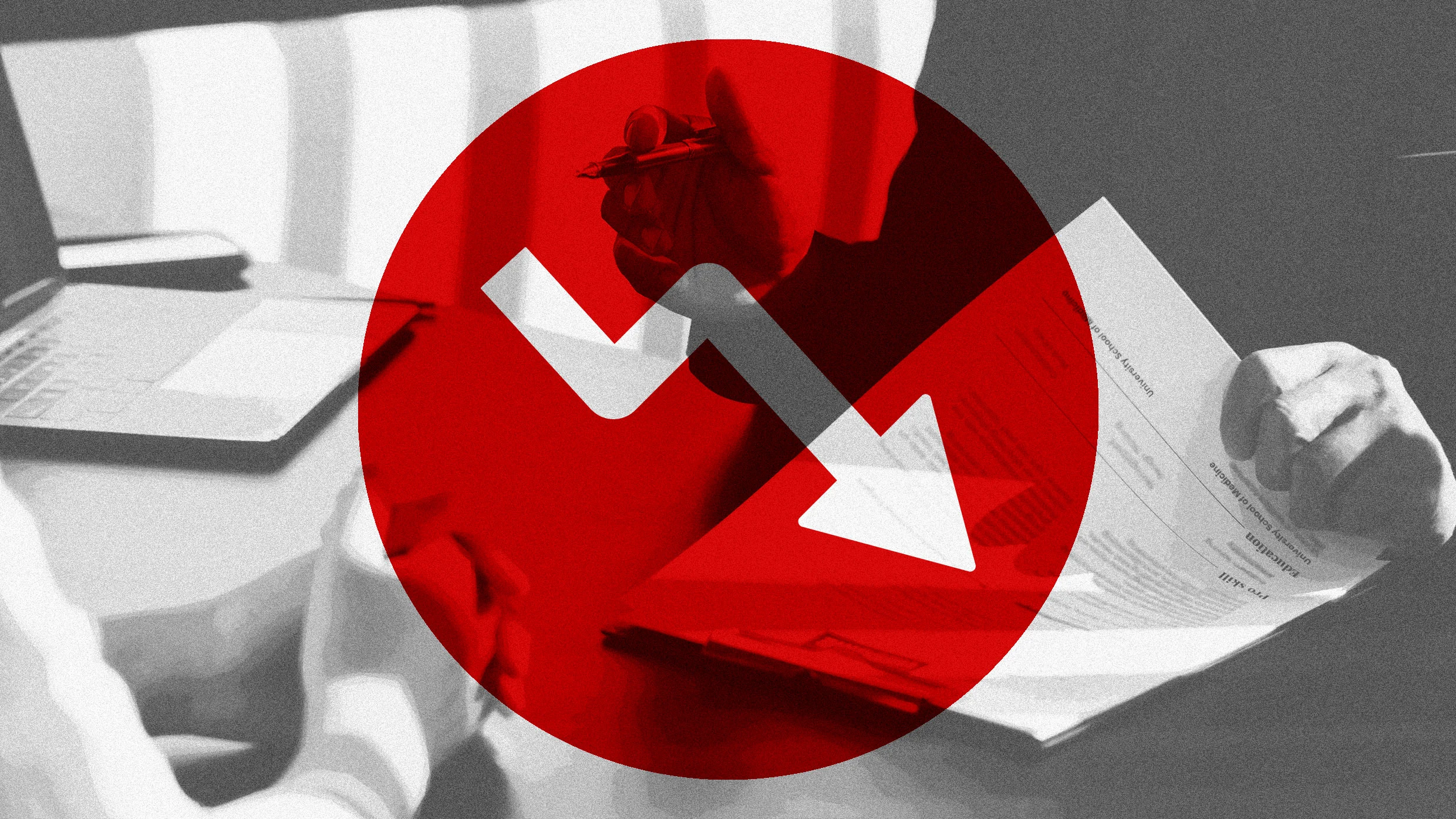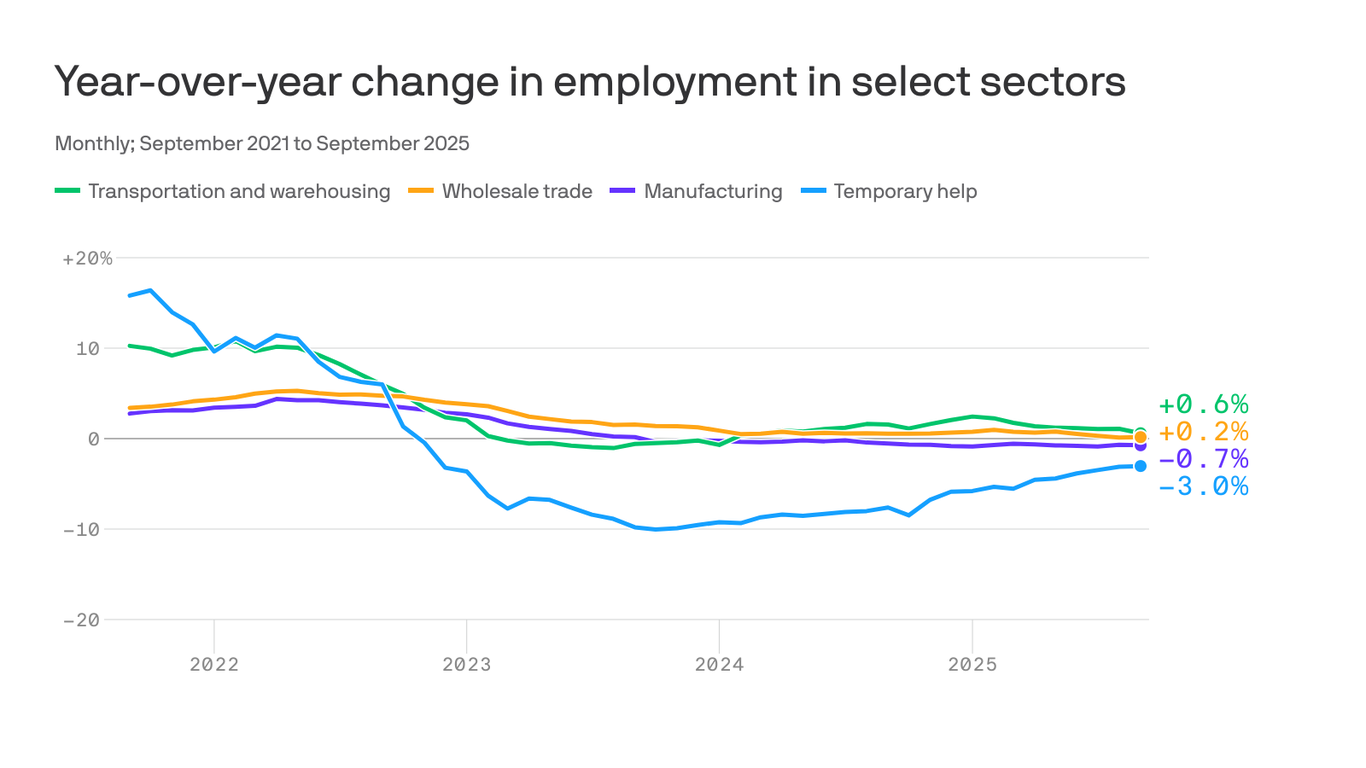#employment
#employment
[ follow ]
#inflation #federal-reserve #wages #interest-rates #manufacturing #unemployment-rate #ai #layoffs #education
fromHarvard Business Review
4 weeks agoCompanies Are Laying Off Workers Because of AI's Potential-Not Its Performance
Will AI lead to layoffs? Are people already losing their jobs to AI? While overall employment in the U.S. is still relatively low, there is considerable speculation that the adoption of generative AI was a cause of recent layoffs and slowed hiring, particularly in the tech industry, for entry-level workers, and in customer service and programming jobs. More may be coming: Leading CEOs-including those from Ford, Amazon, Salesforce, and JP Morgan Chase-have proclaimed that many white-collar jobs at their companies will soon disappear.
Artificial intelligence
California
fromFresno Bee
1 month agoWhat's causing the migration from California? Who is leaving the state and why
California is experiencing net out-migration driven primarily by high housing costs and employment, disproportionately affecting lower-income adults and prompting college graduates to leave.
California
fromSacramento Bee
1 month agoWhat's causing the migration from California? Who is leaving the state and why
High housing costs and limited well‑paying jobs are causing net out-migration from California, disproportionately affecting lower-income adults and prompting wealthier residents to leave too.
fromwww.bbc.com
1 month agoFootball worth over 800m to Scottish economy
The study by the Fraser of Allander Institute found that the professional men's and women's game, alongside the national teams, generated 820m during the 2023/24 season when fan spending was included. Without spectator-related expenditure, the sport's direct economic contribution stood at 545m, supporting the equivalent of 9,245 full-time jobs rising to14,315 with matchday spending added. Attendances at professional matches involving Scottish teams topped 6.8 million during the 2023/24 campaign.
Soccer (FIFA)
Artificial intelligence
fromwww.mercurynews.com
1 month agoGoldberg: An anti-AI movement is coming. Which party will lead it?
Society is sleepwalking into an AI-driven dystopia that degrades education, employment, arts, environment, privacy, and collective reality while promising speculative technological marvels.
fromWashingtonian - The website that Washington lives by.
2 months agoWiles Baffles Washington With Unvarnished Honesty, GOP Gives Up on Fixing Health-Care Mess, Fox Gets Stuck in Fence - Washingtonian
The chill's grip on us finally loosens today, as cold temperatures this morning yield to a high around 50 by mid-afternoon. A low near 30 overnight. You can find me on Bluesky, I'm @abeaujon.87 on Signal, and there's a link to my email address below. This roundup is available as a morning email newsletter. Sign up here. I can't stop listening to: Taisha Estrada, " El Abstracto ." This Puerto Rico-born DC-area artist has an astonishingly beautiful singing voice.
US politics
World news
fromenglish.elpais.com
2 months agoMexico's Generation Z is growing up with precariousness, uncertainty and political distrust. And social media is their primary source of information
Generation Z protests in Mexico City express a demand for freedom understood as reliable employment, education, mental health care, transit, housing, and safety.
UK news
fromLondon Business News | Londonlovesbusiness.com
2 months agoOutput growth remains strong across the capital - London Business News | Londonlovesbusiness.com
London's private sector expanded strongly in November, driven by new work and demand, while firms kept prices competitive despite rising input costs and job cuts.
UK news
fromLondon Business News | Londonlovesbusiness.com
3 months agoSentiment amongst retailers falls at it's sharpest in 17-years - London Business News | Londonlovesbusiness.com
Retailer sentiment plunged to a 17-year low as sales volumes fell sharply and firms plan reduced investment and hiring amid weak demand.
fromJezebel
3 months agoThe True Poverty Line Is not $140,000, But It's Still Shockingly High
The average American has always been misinformed about basic economic and political realities, but not to this degree. Something has fundamentally changed in how people perceive the economy, and this is far more than just media misinformation (which does play a big part). We can actually measure people's sentiment in myriad ways, and with the holiday season on the horizon, the Conference Board's Consumer Confidence Index fell to a seven month low of 88.7 in November, missing analysts' expectations today of 93.2.
Business
Music
fromLos Angeles Times
3 months agoSmokey Robinson faces new sexual assault claims from another ex-housekeeper, car detailer
Two more former employees amended a lawsuit alleging Smokey Robinson sexually assaulted them and unpaid overtime; Robinson's attorney denies the claims and calls them conspiratorial.
Miscellaneous
fromBusiness Matters
3 months agoScottish salmon delivers 1bn boost to economy as new report reveals soaring impact
Scottish salmon farming contributes £1 billion annually, supports 11,000 jobs, pays above‑average salaries, and substantially boosts rural economies, exports, and local supply chains.
fromAol
3 months agoAfter Being Fired from the Family Business She Helped Build, Woman Refuses to Hand Over the Website
A woman sought advice from the Reddit community after she was fired from her family's business and refused to transfer the company's website that she had built and maintained for years. When they demanded she transfer the complex website she had built, she refused, offering instead to let them copy it and take the domain. Now, she's wondering if she's wrong for standing her ground
Careers
fromLondon Business News | Londonlovesbusiness.com
4 months agoHospitality sector comes under further pressure as wages rise to record high - London Business News | Londonlovesbusiness.com
The steep rise in hospitality wages to a record high will come as a big concern to the sector, particularly following a prolonged period of subdued sales. This puts more pressure on margins, with every £1 increase in wages also leading to additional employers' NIC, resulting in a double whammy on operators' costs.
Business
fromLondon Business News | Londonlovesbusiness.com
4 months agoChancellor warned are at risk without Autumn Budget lifelines - London Business News | Londonlovesbusiness.com
This 3.5% increase, equating to 191,000 new businesses since last year, is a testament to the resilience and entrepreneurial spirit driving our economy, and it is heartening to see so many individuals taking the initiative to establish their own ventures, but as chancellor Rachel Reeves recently said, the UK's economy "isn't broken, but it does feel stuck". Addressing this issue needs to be a priority for the survival of SMEs within turbulent market conditions.
Business
fromWIRED
4 months agoThere's Never Been a Worse Time to Be Authentic at Work
Burey, who is Black, was no stranger to workplace hypocrisy; as she sees it, the office is a petri dish where the knotty dynamics of society are concentrated. At the time of the accusation in February 2020, however, all she could do was laugh. "I was like, you knew who I was before you poached me. This is exactly what you wanted me to do," she says over Zoom.
Social justice
fromIndependent
5 months agoFAI seek 8million annual investment to create 340 new jobs as LOI academy submission to Government revealed
THE FAI have lodged their pre-budget submission with government for the support of League of Ireland academies with the football organisation looking for an initial amount of €4.45m per annum for two years that will create a total of 81 new jobs in clubs around the country before a jump to €8m annually with the hope of creating 340 full and part-time jobs to kickstart an industry.
Soccer (FIFA)
fromLondon Business News | Londonlovesbusiness.com
5 months agoEconomic Inactivity in the three months to June came in at 21.1% - London Business News | Londonlovesbusiness.com
On one level this data shows a stable labour market performing as expected - albeit not particularly strongly. Unemployment is holding steady and in line with expectations, while wages continue to rise faster than inflation. However, underneath that there are some worrying signs. Vacancies have fallen by 10,000 in the quarter to August, a 38th consecutive fall, and is less than half the number of people currently claiming unemployment benefits.
UK news
fromPsychology Today
5 months agoHow Corporate American Culture Fails People with Autism
There's little doubt that autistic people are the most unemployed, underpaid, and overeducated disability population. While no research suggests that autistic people are poor workers, there is research that shines a light on how well their bottom-up processing and "noisy brains" make them particularly suited for plenty of productive work. Autistic people may face serious challenges in the work world because of their sensitivity to social justice, their lack of awareness of hierarchy.
Mental health
fromwww.theguardian.com
5 months agoUK businesses cut jobs at fastest pace in four years over summer, Bank of England finds
UK businesses cut jobs at the fastest pace in four years over the summer, according to a Bank of England survey highlighting the impact from tax rises on employers. The monthly snapshot from a survey of chief financial officers at British businesses of all sizes showed firms reduced employment by an annual rate of 0.5% in the three months to August, the fastest since 2021.
UK politics
fromSFGATE
6 months agoWeekly Mortgage Rates Rise, Halting Two-Week Slide
Since the Trump tariffs were announced in April, financial markets have tried to assess their effects on inflation and employment. It turns out that both economic indicators are getting worse. The core consumer price index rose from 2.9% in June to 3% in July, while the unemployment rate rose from 4.1% to 4.2%. Job growth slowed way down, with nonfarm payrolls increasing a total of just 106,000 jobs from May through July, compared to 380,000 in the three months before that.
Real estate
Public health
fromwww.mercurynews.com
6 months agoLetters: Supplemental education pays dividends in the long run
California educators are committed to enhancing student literacy, which is crucial for reducing crime and ensuring employability.
H-1B visas are criticized for perpetuating a form of modern indentured servitude, limiting job opportunities for American workers.
NYC real estate
fromwww.amny.com
6 months agoOp-Ed | Resorts World Queens leads the way in preparing New Yorkers for thousands of new gaming industry jobs | amNewYork
Resorts World New York City will create 5,000 jobs through a $5.5 billion expansion, focusing on preparing local residents for careers in gaming.
NYC real estate
fromstupiddope.com
6 months agoHarlem Week's Jobs & Career Fair Returns With Record-Breaking Opportunities | stupidDOPE | Est. 2008
NYC Jobs & Career Fair connects New Yorkers to meaningful career opportunities amid Harlem Week's cultural celebration.
Harlem Week has grown into a significant cultural institution that champions community resilience and engagement.
[ Load more ]

























